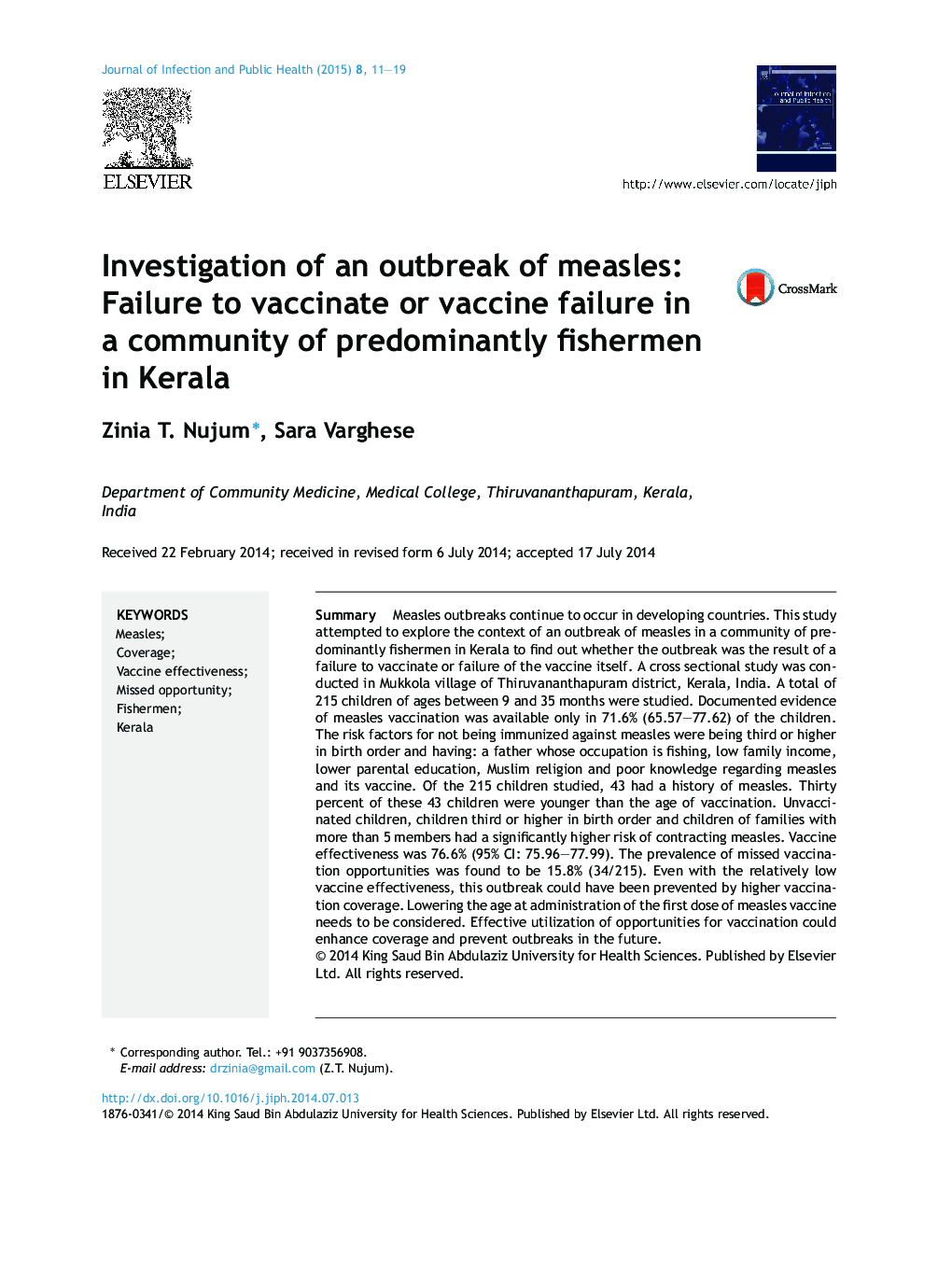| Article ID | Journal | Published Year | Pages | File Type |
|---|---|---|---|---|
| 3405994 | Journal of Infection and Public Health | 2015 | 9 Pages |
SummaryMeasles outbreaks continue to occur in developing countries. This study attempted to explore the context of an outbreak of measles in a community of predominantly fishermen in Kerala to find out whether the outbreak was the result of a failure to vaccinate or failure of the vaccine itself. A cross sectional study was conducted in Mukkola village of Thiruvananthapuram district, Kerala, India. A total of 215 children of ages between 9 and 35 months were studied. Documented evidence of measles vaccination was available only in 71.6% (65.57–77.62) of the children. The risk factors for not being immunized against measles were being third or higher in birth order and having: a father whose occupation is fishing, low family income, lower parental education, Muslim religion and poor knowledge regarding measles and its vaccine. Of the 215 children studied, 43 had a history of measles. Thirty percent of these 43 children were younger than the age of vaccination. Unvaccinated children, children third or higher in birth order and children of families with more than 5 members had a significantly higher risk of contracting measles. Vaccine effectiveness was 76.6% (95% CI: 75.96–77.99). The prevalence of missed vaccination opportunities was found to be 15.8% (34/215). Even with the relatively low vaccine effectiveness, this outbreak could have been prevented by higher vaccination coverage. Lowering the age at administration of the first dose of measles vaccine needs to be considered. Effective utilization of opportunities for vaccination could enhance coverage and prevent outbreaks in the future.
